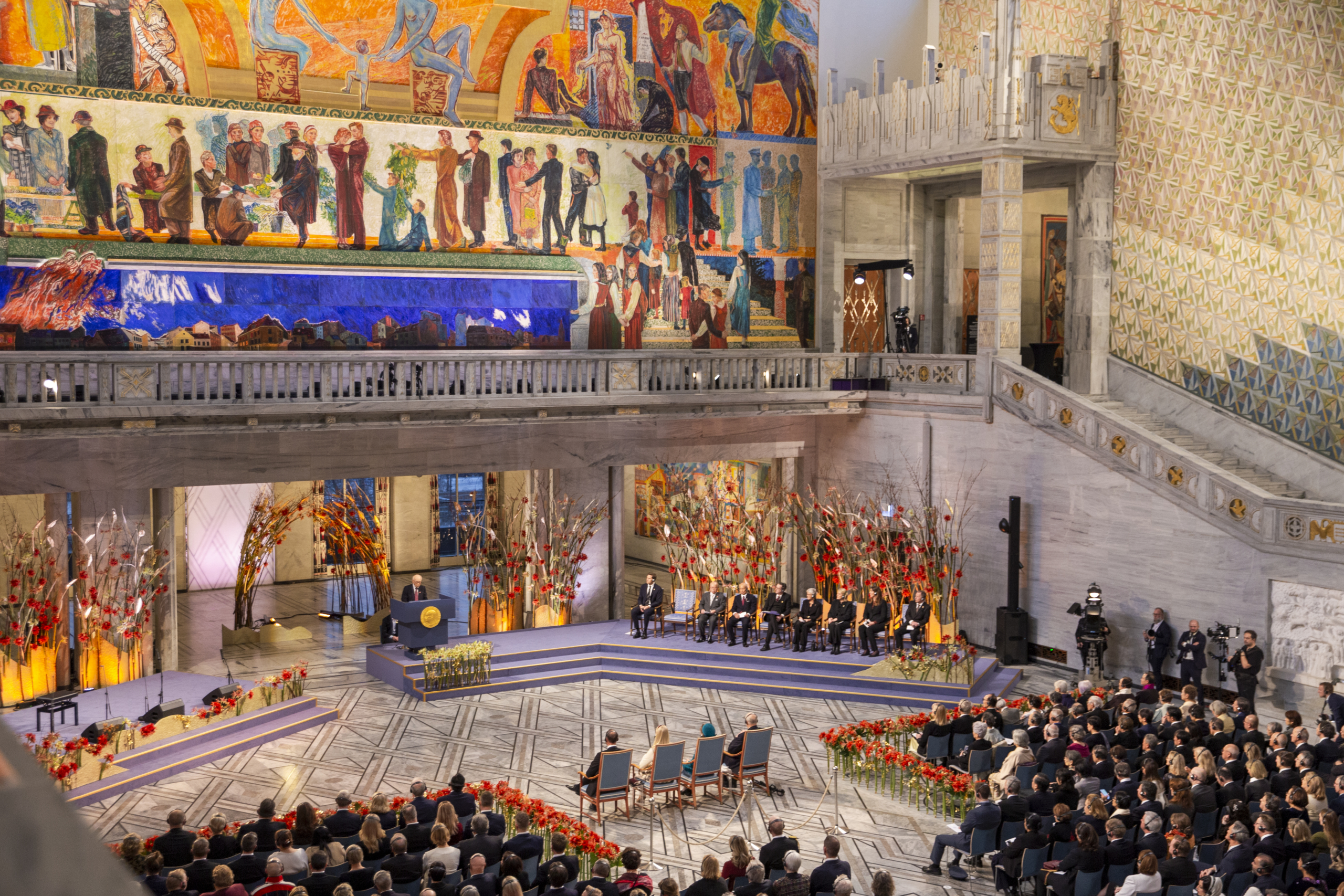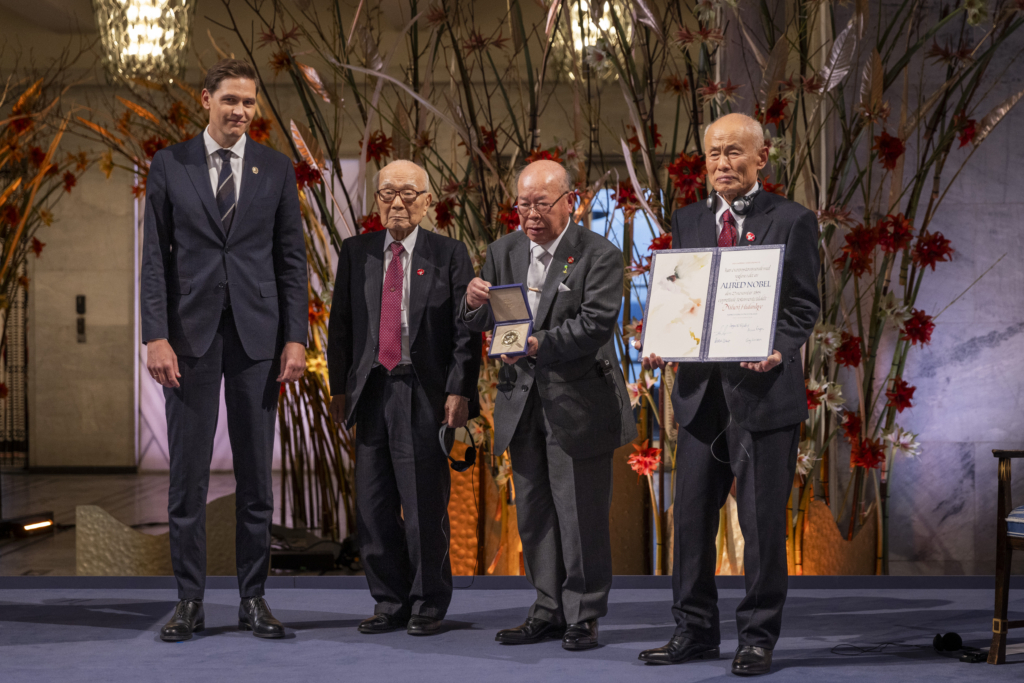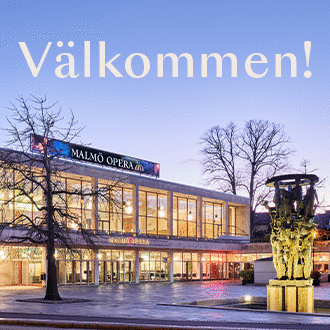In Oslo, Nihon Hidankyo received the Nobel Peace Prize during a formal ceremony on 10th December. This Japanese association of survivors of Hiroshima and Nagasaki advocates for a world free from nuclear weapons.
On Tuesday 10th December 2024, it is 1 p.m. when the trumpets announce the opening of the Nobel Peace Prize ceremony at Oslo City Hall. This year’s laureate is Nihon Hidankyo, a Japanese organisation that has been campaigning for more than 70 years against nuclear weapons to ensure that their use remains a taboo. Nihon Hidankyo is made up of ”Hibakusha”, the Japanese name for survivors of an atomic bomb. The three copresidents of the organisation, Shigemitsu Tanaka (84),Toshiyuki Mimaki (82) and Terumi Tanaka (92), are there to receive this prize on Nihon Hidankyo’s behalf.
The Chair of the Norwegian Nobel Committee, Jørgen Watne Frydnes, is the first to speak in front of an audience consisting of the Norwegian royal family, officials and journalists.
– The [nuclear] taboo is fragile, and it becomes more so with the passage of time. We therefore need reminding. Nihon Hidankyo and the Hibakusha – the survivors of the atomic bomb attacks on Hiroshima and Nagasaki – have never wavered in their efforts to erect a worldwide moral and legal bulwark against the use of nuclear weapons. Their role in establishing the taboo is unique, Jørgen Watne Frydnes says.
After the formal reception of the Nobel prize by the three copresidents of Nihon Hidankyo, Terumi Tanaka goes alone to the lectern to deliver a powerful speech. Tanaka feels saddened and angered by the fragility of the nuclear taboo nowadays.
– The nuclear superpower Russia threatens to use nuclear weapons in its war against Ukraine, and a cabinet member of Israel, in the midst of its unrelenting attacks on Gaza in Palestine, even spoke of the possible use of nuclear arms, he says.
During a press conference the day before, 9th December, Terumi Tanaka already condemned the position of Vladimir Putin and Russia on nuclear weapons.
– President Putin, I don’t think he truly understands what nuclear weapons are for human beings. I don’t think he has even thought about this.

In his Nobel Peace Prize lecture, Terumi Tanaka’s voice does not hesitate. He urges governments to take action to eliminate nuclear weapons, almost 80 years after the bombing of Hiroshima and Nagasaki, which killed at least 210,000 people on 6 and 9 August 1945.
Covered by journalists from the whole world, the event has especially interested Japanese media. The majority of the journalists accredited for the ceremony are actually Japanese. One of them, Ryuhei Ito, works for the Japanese news agency Kyodo News.
– I think the speeches from Mr Frydnes and Mr Terumi Tanaka sank very deeply inside, especially to Japanese people. The words of Mr Tanaka expressed very explicitly and clearly what happened. There will be nobody to talk about the testimony in the future and this peace award has given impact to the younger generation to think about what the atomic bomb did, Ryuhei Ito says to Lundagård.
Indeed, Terumi Tanaka recalls his own story and explains what he saw almost 80 years ago. Thirteen years old at the time of the bombing, he still remembers the ”bright, white light” invading his home, around 3 kilometers east of ground zero in Nagasaki. He also describes the horrors that he witnessed the days after the catastrophe.
– All the houses along the path, down to the foot of the mountain, were burnt to the ground and corpses lay scattered around them. Many people who were badly injured or burned, but still alive, were left unattended, with no help whatsoever. I became almost devoid of emotion, somehow closing off my sense of humanity, and simply headed intently for my destination.
In the city hall, the other Hibakusha listen with great attention to his words that detail what they experienced. Masao Tomonaga is one of them. This scientist and director emeritus of the Japanese Red Cross Nagasaki Atomic Bomb Hospital has been working on radiation effects and atomic bomb-related medical care for over 50 years.
Lundagård meets him just after the ceremony, in Oslo Grand Hotel where the Nihon Hidankyo’s members and other Hibakusha are staying. At a table away from the noise of other interviews and discussions, he explains that he is very moved by this ceremony and by the speech of Terumi Tanaka. Masao Tomonaga also recalls his personal story with Nagasaki bombing.
– I was two years old, in 1945 August 9, when the second atomic bomb was dropped by the US Airforce. My house was located around 2,5 kilometers from ground zero. I was sleeping of the second floor because I had a high fever. Because of the nuclear explosion, many fragments of the roof fell down but my mother came up and took me out of the house.
As a Hibakusha, he is about to give a speech at the Nobel Peace Prize forum and hope their testimonies will influence the younger generations.
– We must restart the antinuclear movement on this very valuable occasion of Hidankyo’s receipt of the Nobel peace prize. It is a really important moment for a world free from nuclear weapons. The present international security deterioration is really terrible, with Russia, Israel and we also have a threat from North Korea all related to nuclear power. I want to be optimistic, but I am not so much in our present time, says Masao Tomonaga.










